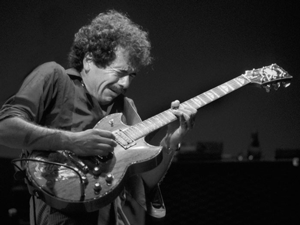 It may not be obvious, but the world of rock ‘n’ roll knows a lot more about how to connect with consumers in a powerful way than many multi-national companies with multi-million budgets to match, a point I make in my latest book, The Art of Influencing and Selling.
It may not be obvious, but the world of rock ‘n’ roll knows a lot more about how to connect with consumers in a powerful way than many multi-national companies with multi-million budgets to match, a point I make in my latest book, The Art of Influencing and Selling.
And I don’t mean by connecting with consumers through iTunes and the mobile internet, although of course that’s a proven way of reaching music fans. What I want to talk about is about ‘rendering authenticity’ in order to connect with the next generation of consumers and fans.
The term was conceived by James H Gilmore and Joseph Pine, two US academics that at the turn of the 21st century wrote about how the global economy would move from service to experience. It will be a world in which consumers pay for goods and services that make them feel happy, contented and satisfied.
In other words, helps them find their ‘mojo’.
Abraham Maslow called this a state of ‘self-actualisation’ where our deeper psychological needs are what really count, having successfully satisfied our more physical needs for eating, heating and shelter.
And there’s a very good reason for this.
Consumers today see the world in terms of phoney and real and want something genuine and authentic from someone that reflects their own attitudes, values, beliefs, perceptions and behaviours.
If brand owners come up short, such as a utility company that provides a miserable customer experience when things go wrong, then that makes us unhappy and won’t translate into customer loyalty.
On the other hand, a brand owner that’s into collaborating with us such as allowing us to have our say in the content and delivery of a service will find many more happy customers queuing at its door to be served. It’s one of the reasons why online bank First Direct was so phenomenally successful when it was launched in 1989.
Fast forward to today and we’re living in a world of 24/7 reality TV that isn’t real; where our on-line personas allow us to think we can say anything we like without being held accountable and as a result of spending far too much time on the web we appear to be suffering from some form of split personality and identity crisis.
It’s then no surprise that as consumers we hunger for something else, don’t we?
And that’s authenticity.
For example, there’s something very authentic in hearing a piece of music for the first time as I did when I listened to Bowie’s new album The Next Day which blew me away.
But there’s a dilemma here at the quest for authenticity.
If brand owners try too hard to create authentic experiences they could end up looking fake.
 Music legend and successful entrepreneur Carlos Santana has a unique and powerful take on this dilemma as well as a solution for it.
Music legend and successful entrepreneur Carlos Santana has a unique and powerful take on this dilemma as well as a solution for it.
“Collaboration, partnership [and] friendship all take trust and willingness to allow willingness. When I collaborate on a song or on stage, I’m here to complement, not compete. If I’m playing with [Luciano] Pavarotti, Eric Clapton or Juanes [Juan Esteban Aristizábal Vásquez], a true collaboration only works when you complement what the other person is saying and inspire one another to go further. For me onstage and in business, this is essential,” he says.
And he’s applied these principles not only in the recording studio and on tour but also in his other interests that include Casa Noble Tequila and a range of ladies shoes and handbags that carry his trademark.
“With the success of “Supernatural” [1999 platinum selling album] we began looking for new ways to help fuel my families’ philanthropic efforts through The Milagro Foundation. The Carlos by Carlos Santana line of women’s shoes and handbags are born from this seed. I learned very early in life that if the females are happy, then everyone is happy. We get incredible positive feedback through my shoe and handbag lines and in turn we’re able to help educate, feed and give health services to children all over the world. There’s no greater joy for me than to know I’m making a difference in a child’s life.”
What makes Carlos Santana and his various philanthropic activities authentic is that they’re all genuine and stay true to their core values and their heritage; a point that’s explored at the UK’s only MBA for the music industry at Henley Business School organised by programme director Helen Gammons. This ground breaking programme explores how brand owners can unlock the potential of creativity and innovation in business in much the same way as Carlos Santana and others have done in the music business.














Recent Comments